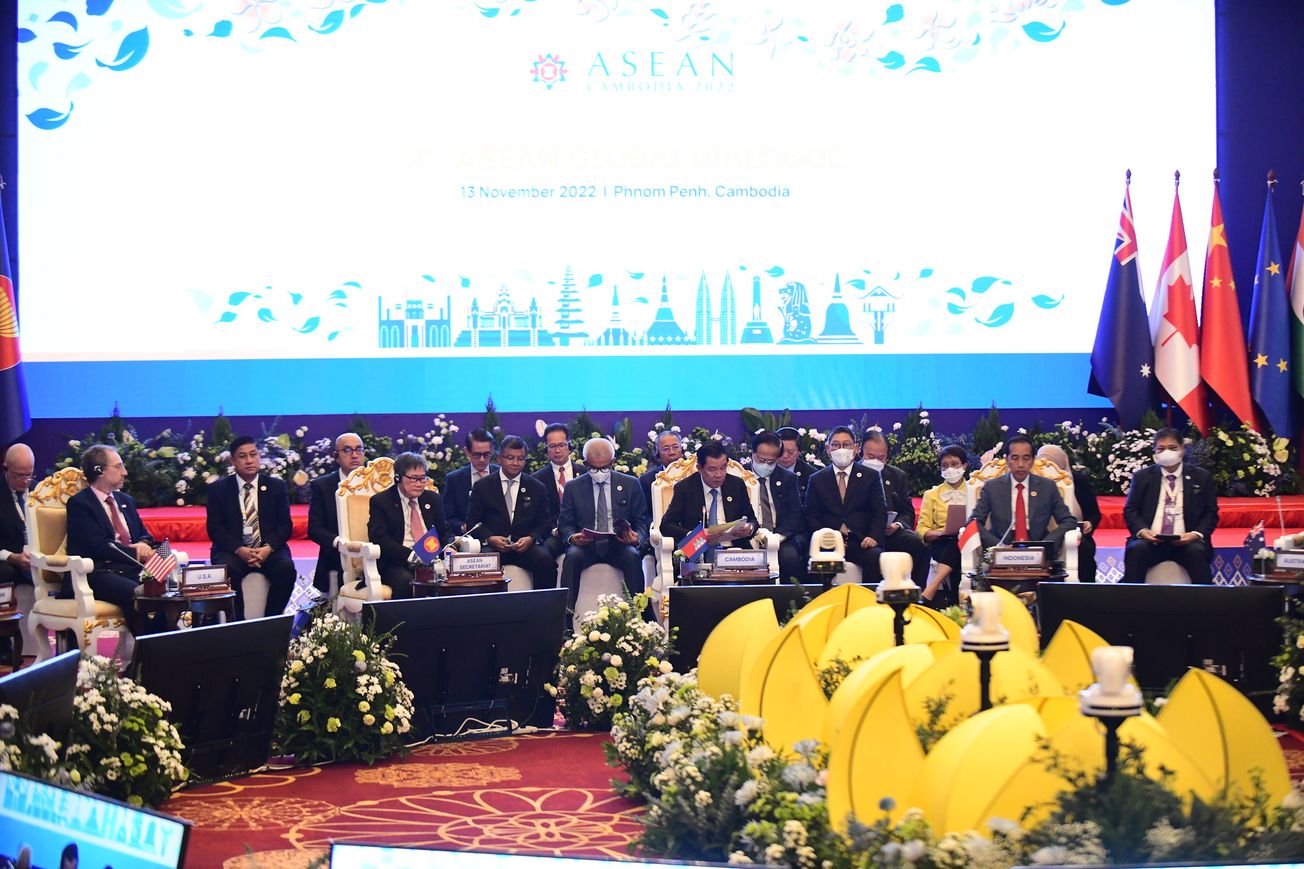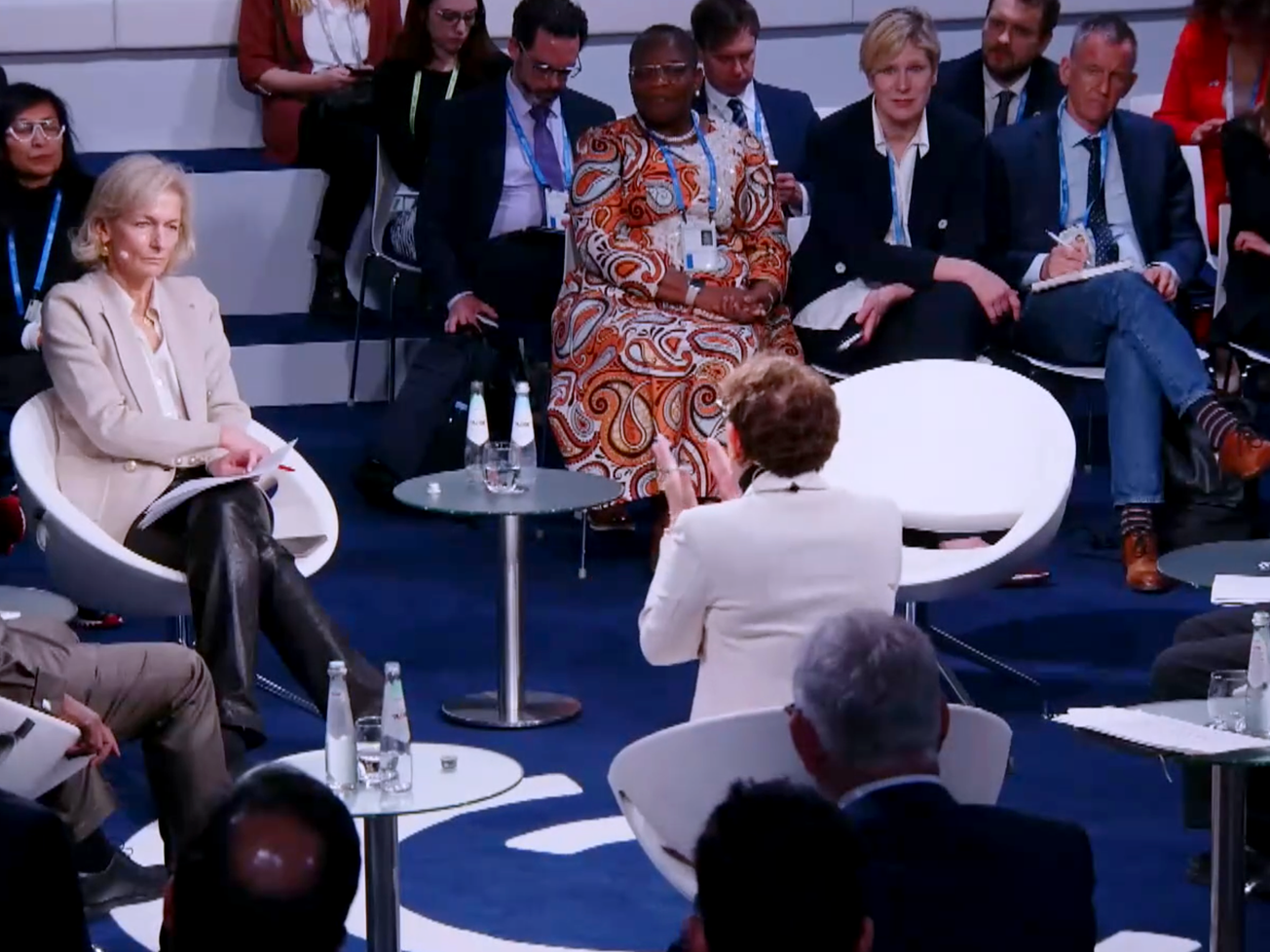Rising tensions between the United States and China and Myanmar's descent into widespread violence since a 2021 military coup dominated talks among world leaders hosted by a prominent Southeast Asian intergovernmental organization.
“Many current challenges and tensions have been hindering our past hard-earned efforts to promote sustainable development and causing greater hardship to people’s lives,” said Cambodia's Prime Minister Hun Sen, whose nation hosted the talks as chair of the Association of Southeast Asian Nations this year.
As the talks wrapped up on Sunday, Indonesian President Joko Widodo, whose nation will chair ASEAN in 2023, signaled a more hardline approach to the competition between China and the United States for more regional influence.
“ASEAN must become a peaceful region and anchor for global stability, consistently uphold international law and not be a proxy to any powers,” he said. “ASEAN should not let the current geopolitical dynamic turn into a new Cold War in our region.”
Japan's Prime Minister Fumio Kishida also expressed "serious concern over unilateral attempts to change the status quo by force in the East and South China Seas as well as economic coercion" and the deteriorating situation in Myanmar.
Leaders of the 10-nation bloc wrapped up their weekend summit and related summits in Cambodia's capital, Phnom Penh, where U.S. President Joe Biden emphasized his pursuit of stronger security and economic ties in the region.
"I look forward to continuing our work together with the ASEAN and with each one of you to deepen peace and prosperity throughout the region, to resolve challenges from the South China Sea to Myanmar, and to find innovative new solutions to shared challenges," he said.
On the final day of the 40th and 41st ASEAN Summits and Related Meetings, Cambodia will hand over the ASEAN Chairmanship to Indonesia.
— ASEAN (@ASEAN) November 13, 2022
Witness the handover at https://t.co/pYVEcGdShH
Follow us on social media to learn more.#ASEANSummit40and41 pic.twitter.com/RAxUUieDK0
Dueling military maneuvers
ASEAN's members — Brunei, Cambodia, Indonesia, Laos, Malaysia, Myanmar, Philippines, Singapore, Thailand, and Vietnam — drew attention to Myanmar's crisis. ASEAN has previously pushed back at China by asserting a 1982 U.N. treaty should serve as the basis for resolving disputes over claims in the South China Sea.
But China's pressure for dominance in the Asia-Pacific, including its claim to Taiwan's democracy, also runs up against U.S. interests. China flew dozens of fighter jets and bombers near Taiwan, while Australia, India, Japan and the U.S. conducted naval exercises in the Philippine Sea in the vicinity of Taiwan.
Last month the Biden administration announced its first National Security Strategy that addresses the competition among major powers and calls China the "most consequential geopolitical challenge."
Biden, China's Prime Minister Li Keqiang and Russian Foreign Minister Sergey Lavrov attended the East Asia Summit held alongside the ASEAN gathering. Biden and his Chinese counterpart, Xi Jinping, plan to hold face-to-face talks on Monday on the sidelines of the Group of 20 summit in Bali, Indonesia.
China is the bloc's biggest trading partner, but Li Keqiang warned that “unilateralism and protectionism are surging" amid rising risks to the world economy and unprecedented challenges to global development.
ASEAN leaders agreed to engage Myanmar opposition groups while seeking to quell the violence that has killed thousands since a Feb. 2021 military coup ended the nation's tentative steps toward democracy after decades of army rule.







